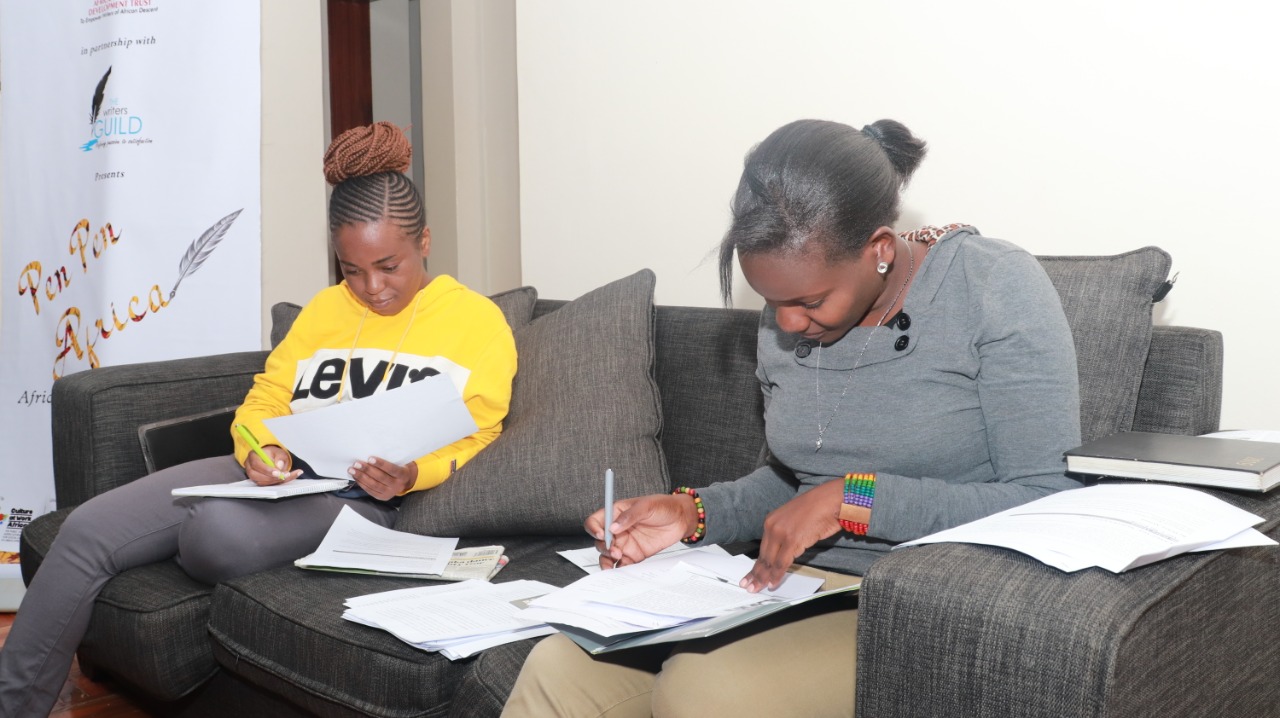By Wr. Dismas Okombo
The first assignment Edith gave us was to translate a passage in English to our mother tongue. We hunched over our notepads; some with mild hesitations, some with bold enthusiasm. After about fifteen minutes of searching for approximate words, each read their translations. Banyankole, Kinyarwanda, Tumbuka, Luo, Swahili, and Kamba. “How was the translation process?” She asked when everyone had read theirs. The whole team agreed that there were some difficulties and, listed in the top three were; lack of mother tongue equivalent of some English words, the need to change sentence structures and loss of creativity.
She had paused. Her gentle smile building up anticipation for her next words: “Language is not just a tool of communication, but also a carrier of culture.” At these words, the conclusion of our first class with Kola [Literature void of culture is empty.] instinctively came to mind. As she launched into demonstrating her point, I took a mental detour to connect the two thoughts. ‘A people’s language is part of their culture; it is part of their identity. Thus, if I narrate a people’s culture and fail to use language as they would, then my endeavors are futile.’ Before bringing my full awareness back to the class, the observations of Cheik Diop on the linguistic factor lingered my mind.
In grappling with the factors to consider when defining cultural identity, in his book Civilization or Barbarism, Cheik lists historical factor, linguistic factors and psychological factors. Under linguistic factors he amplifies the thoughts of Montesquieu: ‘as long as a conquered people has not lost its language, it can have hope.’ Thus, it is evident that language takes a huge part of people’s identity. Coming to these realizations, I desired to add them to the ongoing discussions. But in same instance, she was saying an interesting point. I had to withhold my comments and listen. “…I bet each one of us have encountered a particular word in our mother tongue that has no proper English equivalence. And trying to approximate the translation makes the word lose its original, creative sense. Why do we curtail our creativity by ‘Englinizing’ our words?”
Then she gave the second assignment. “Write one or two paragraphs. Ignore the English sentence structure. Simply write it the way you think it your mother tongue. Use English only as a tool of communicating your thoughts.” And this time, having warmed up to her open and enchanting personality, the whole class took to the task with immense enthusiasm. I set my heart free; employed my native idioms and imageries. Writing has never felt that easy. At the end of the assignment, the resulting writings sounded authentic and comical. Beaming smiles played on everyone’s countenance. To write without double checking the precision of English felt liberating.
On these two exercises, she introduced to us the concept of rotten English. Here, English is used only as tool of communication and not as a carrier of culture. Yes, there might be English equivalence for that feeling you want to capture, but because English is not your first language you are not obliged to torture yourself with checking the dictionary and googling. Just write your heart out. In using rotten English, the sole task of the narrator is to tell the people’s stories as the people would themselves. And we read Sozaboy, the comical work of Ken Saro-Wiwa. There is something magical in a work of literature that uses language as the people use it.
She closed the session with a thought-provoking statement: “When we force ourselves to write in English, we are invading a culture that is not ours. Language is life as we live it.”
©writerdismas





